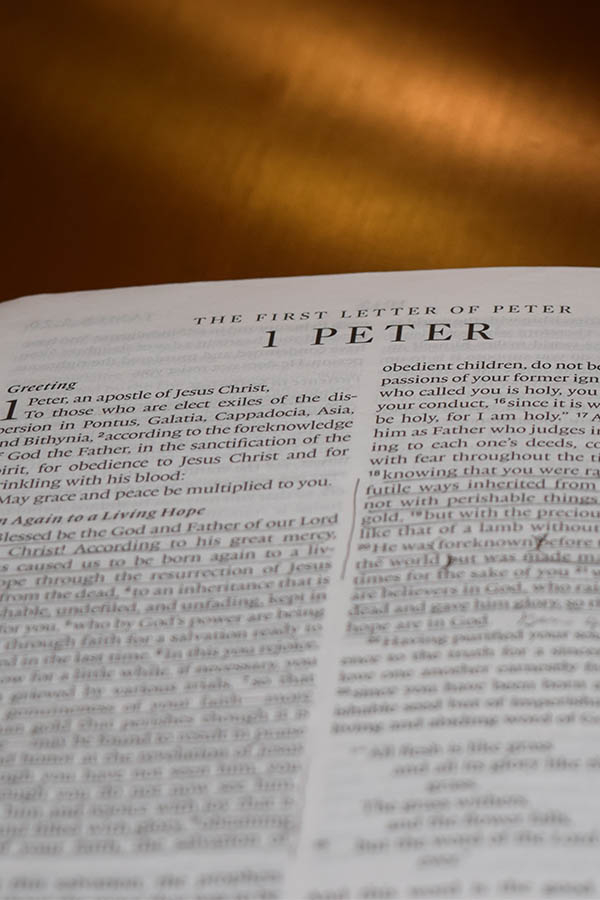Explore the Bible By Jay T. Robertson, Ph.D.
Assistant Professor of Christian Studies, University of Mobile
A LIVING HOPE
1 Peter 1:3–9
Peter wrote from Rome in AD 62–63 to the scattered Christians, “the elect exiles,” in what is modern-day Turkey. He wrote to encourage them to stand firm in the grace of God (1 Pet. 5:12).
Hope Discovered (3–4)
The main theme of these verses is introduced immediately in verse 3. God is to be blessed and praised for His saving work. The focus is on God’s initiative in producing new life. The result of God’s begetting is believers are born anew and enjoy new life in Christ. Believers deserve judgment and wrath, but God is a God of mercy and grace, granting life upon those who are opposed to Him.
A “living hope” is one that is genuine and vital, in contrast to a hope that is empty and vain. The focus is on the word “hope” itself. Jesus followers suffering persecution in Asia Minor are not dashed to the ground by their troubles. They look to the future with sure confidence. Their confidence is not based on wishful thinking but is grounded and secured by the resurrection of Jesus. In other words, their hope is the resurrection. Whatever happens to them in this world is trivial compared to the blessing of the future resurrection. Believers have an unshakable hope for the future, for Christ’s resurrection is a pledge of their own future resurrection.
The “hope” of verse 3 is now described as an inheritance, which in the Old Testament typically described the Promised Land and Israel’s place in it. But the Old Testament inheritance points ahead to an even greater inheritance, reserved in heaven for the people of the new covenant. Nothing can tarnish or extinguish this secure inheritance because it is “kept” by God Himself for believers.
Hope Assured (5)
Salvation in this verse is a further description of the inheritance and the hope. Peter lifts his readers’ minds to what will be revealed in the last time. They will certainly receive this future salvation because God will protect them through His power by sustaining their faith to the end.
We know from the following verses that God does not exempt believers from persecution or suffering. Jesus followers may suffer agonizing pain physically and psychologically because of their stand for Christ. Peter assured his readers that God Himself preserves believers so they will receive their final inheritance.
Hope Celebrated (6–9)
The main theme in verses 3–5 is that believers should praise God because of the certainty of their eschatological hope. In verses 6–9, Peter focuses on the joy and love that fills the lives of believers even though they are suffering. Believers rejoice now because of the inheritance that most certainly awaits them and because they know suffering will not persist forever. When Peter wrote “a little while,” he was not promising the suffering would be brief. The difficulty is brief when compared to future glory but it may endure a lifetime.
The sufferings believers experience are not the result of fate or impersonal forces of nature. They are the will of God for believers (1 Pet. 4:19). These sufferings are God’s will for His people so that their faith might be purified and shown to be genuine. Such faith has a great reward, for at the return of Christ, honor and praise will belong both to Christ and Christians.
Joy is not reserved only for the future when Jesus will be clearly seen at His coming. Even now, His followers love Him, believe in Him and rejoice with an inexpressible joy. The end result is eternal salvation — the completion of God’s saving work.




Share with others: